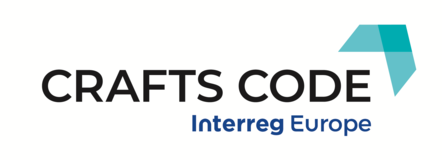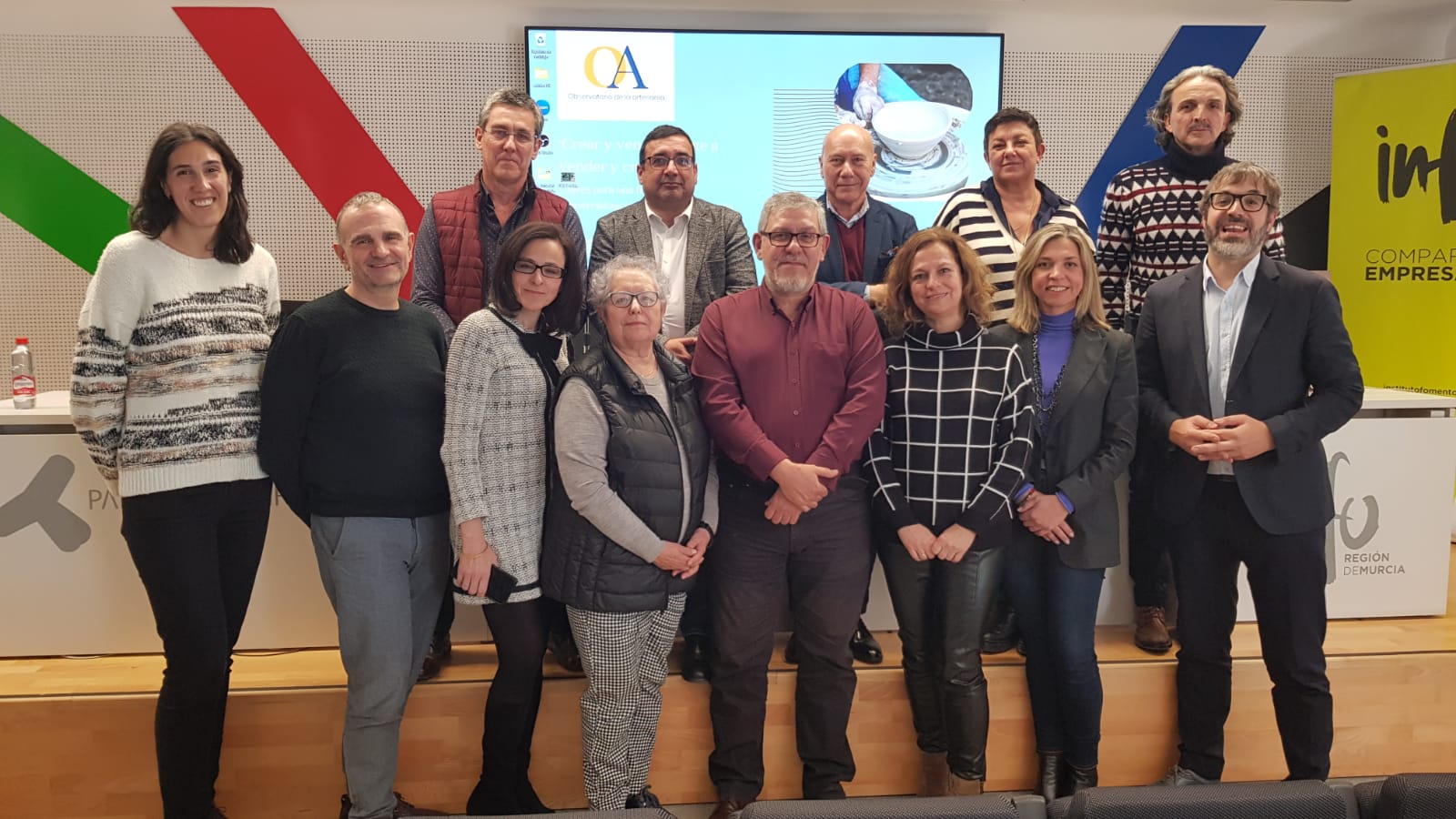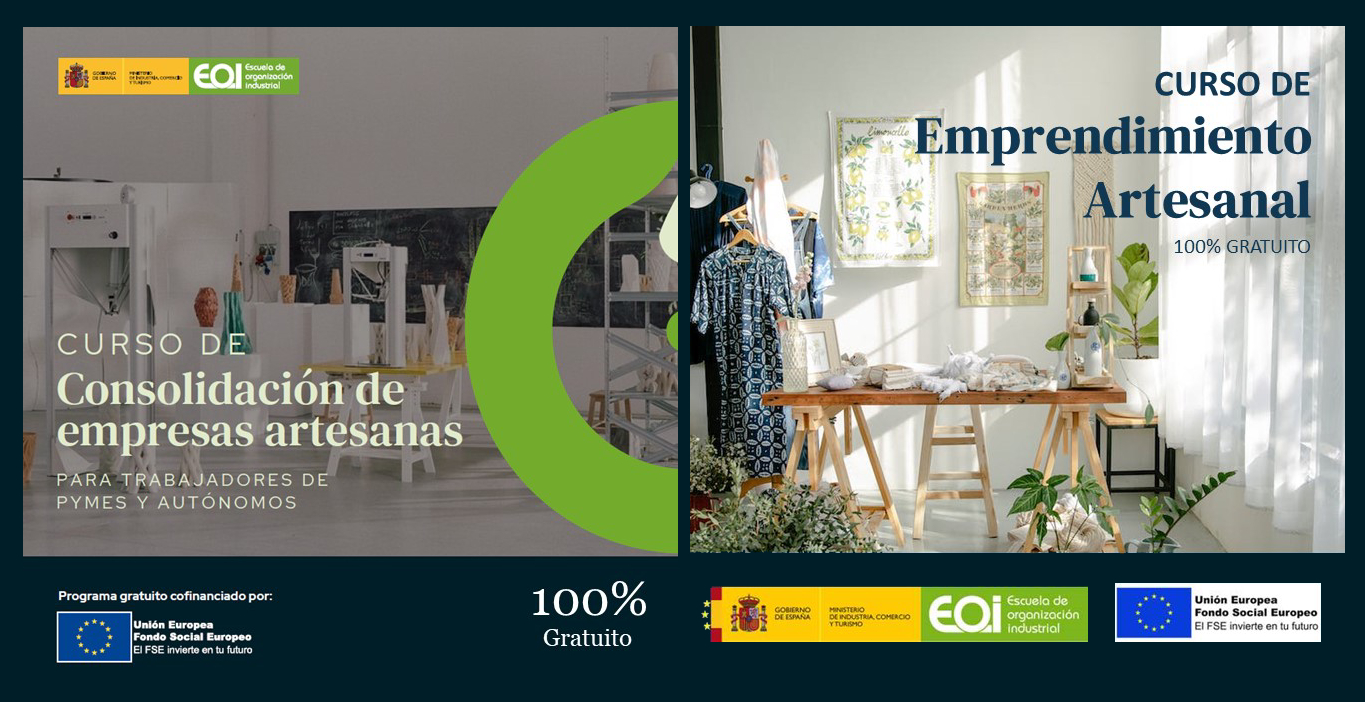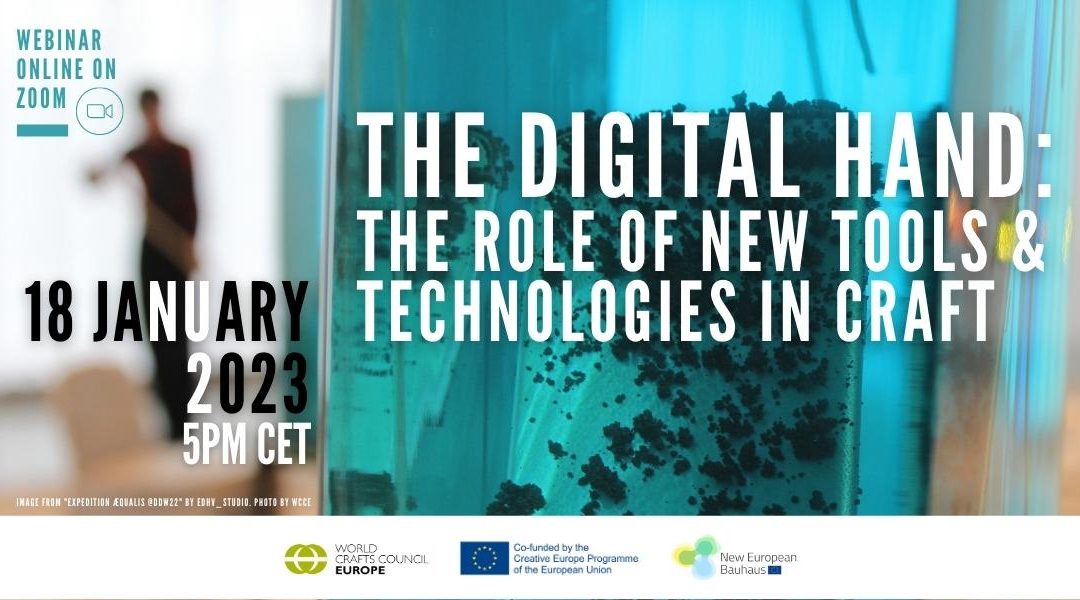On December 16th and 17th, CRAFTS CODE held its second Interregional Thematic Seminar online via Zoom. The event hosted by EOI-Fundesarte, that originally was due to take place in Madrid, was adapted to online due to the pandemic. More than 100 people registered each day, for the two-day seminar where project partners, stakeholders and participants of the project shared their 'Good Practices' which responded to the topic 'How to access to new markets and targets in the crafts sector'.
During the first day, a selection of good practices from the partner countries of the project were presented:
Emer Ferran, from the Design & Crafts Council Ireland (DCCI) and Emmet Bosonett, from Kopper Kreation, presented on the 'Building Craft and Design Enterprise Programme' (BDCE). BCDE is a unique development programme that uses innovation and best practice in product development, digitalisation, research methods and commercialisation to strengthen craft and design enterprises.
Mrs. Gabriella Igyártó, from the Association of Hungarian Folk Artists (AHFA) presented the 'Festival of Folk Arts'. The festival that is organised each year to share unique folk handicraft traditions, and the knowledge is passed on to younger generations with the hope of inspiring future makers to preserve and continue these traditional skills.
Eija Koski from Finland presented on 'International success with pieces of straws' (art of himmeli) and Nora Backlund talked about the 'Ostrobothnian Sustainability week', an event that highlights sustainability and brings together professionals from different sectors, providing a platform to market own activities and find new customers.
For Spain, it was the turn for Paulo Ribeiro who presented on ‘JOYA Barcelona’, a fair of artistic jewellery and author objects that had to reinvent its traditional fair format into an exhibition event because of the global pandemic.
Elisa Guidi, from Italy, shared the good practice of ‘Marketplace B2B and B2C for Craftsmanship: Tuscan Collections’, a digital B2B network for the creative sector which hosts a huge diversity of Tuscan crafts and designs. Elisa also presented on ‘Firenze Creativa Shop: How to explore the online markets with a dedicated platform’ a craftsmanship marketplace, based on an innovative technology developed by an Italian start-up.
For Bulgaria, Nina Dimitrova presented on ‘Can the synergy between the local authorities and the craftsmen attract new customers?’, where the Municipality of Troyan and the local master artisans, combined efforts and resources to create an exciting space for the sale of handicrafts, enabling access to new customers and markets. Velimira Hristova presented on ‘A tumbler with aged Troyan plum rakia, please!’, an interesting case study that includes the collaboration of a Bulgarian brandy producer with a local ceramicist resulting in a new product and allowing both parties to successfully enter new markets.
On the second day, Maribel Martínez, from the consulting agency Abay Analistas, shared a presentation about ‘The near future post-covid-19 trend socioeconomic scenario in Europe focused on consumer goods’, where she explained the main factors of change to be foreseen and has focused on those that can affect the crafts sector, as digitalisation, protectionism and changes in social values and habits. Despite the difficult situation that the sector will have to face in the coming years, crafts have a series of values that will be highly demanded by society from now on, such as durability, sustainability, environmental sensitivity or responsible consumption.
Finally, two other projects that emerged during the pandemic were presented. David Places, from Artesania Catalunya shared a promotional campaign that linked tourism through artisan routes together with heritage and gastronomy, called ‘Grand routes campaign’. Secondly, Manolo González, from Oficio y Arte (Spanish Craftmakers Organization) presented on ‘Open ateliers APP’, a mobile app to find crafts ateliers around Spain that was relaunched this summer in collaboration with Fundesarte.
The recordings from the two-day seminar can be found here: https://www.interregeurope.eu/craftscode/library/











